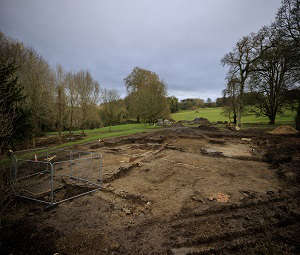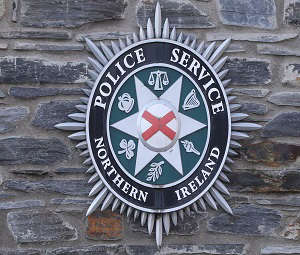
By Rebecca Black, PA
Concern has been voiced over a “low level of preparedness” among businesses in Northern Ireland just weeks before the end of the Brexit transition period.
The Department for the Economy’s chief economist Shane Murphy said his team is anticipating a “very very difficult January”.
As negotiations between the UK and EU continue, with just weeks to go until the transition period ends on December 31, departmental officials said a lack of certainty was causing frustration among businesses.
Shane Murphy speaking in Stormont
From previous concerns about the future of the Irish border, the focus is now on Northern Ireland’s ports as the region prepares to remain in the EU single market for goods while the rest of the UK leaves.
This means EU customs rules will have to be applied at Northern Ireland ports.
However DUP MLA Christopher Stalford told the committee he believes there will be a negotiated outcome, adding he expects Prime Minister Boris Johnson to “fold like a cheap suit”.
“It’ll probably be on the EU’s terms if the Prime Minister’s conduct up to this point is anything to go on – he can huff and puff but generally folds like a cheap suit,” he said.
Delivering a briefing to Stormont’s economy committee, Mr Murphy said the evidence they have points to “pretty low levels of preparedness by business”.
He said clarity is still not available for businesses as “key things are being negotiated in one forum or another”.
He added that even in areas where there is agreement, systems are still being built to carry them out.
“We were probably already concerned about preparedness, and then Covid came along and made things immensely more difficult,” he told the committee.
“For an awful lot of firms out there, Covid is today’s problem and they can’t get their heads above water.
“Businesses constantly express a lot of frustration about clarity and that’s really in very short supply at the minute, frustration that things of this magnitude need clarity along with time to prepare and time to adjust.
“A lot of key things are still being negotiated in one form or another between the UK government and the EU, and obviously time is short. We’re now measuring things in days.
“At that high level the picture is very concerning. Major changes are on the way in January.
“Speaking very candidly, as things stand, we’re anticipating a very, very difficult January.”
Mr Murphy’s colleague Giulia Ni Dhulchaointigh said just 9% of businesses have a plan in place, which she described as “very, very worrying”.
Another departmental official Victor Dukelow said only 6% of businesses have contingency plans in place to address data adequacy across borders. 80% say they have not undertaken any preparatory work on this.
He welcomed the announcement at the weekend that progress has been made on a trade deal with Canada, which he described as a “really significant development for Northern Ireland because we trade a large amount of goods into Canada”.
But Mr Dukelow also voiced concern on the settled status scheme for EU citizens living in Northern Ireland, describing the “clock as ticking” for applications.
“We’re seeking to encourage employers to promote the scheme to their workers and families, make sure they are aware of it and how they can engage with it,” he said.
Economy Committee chair Caoimhe Archibald described the session as a “sobering briefing” and agreed figures around the level of preparedness are concerning.


 Remains of 300-year-old building complex unearthed by chance on country estate
Remains of 300-year-old building complex unearthed by chance on country estate
 Fresh Met Office warning for icy conditions across Northern Ireland
Fresh Met Office warning for icy conditions across Northern Ireland
 Community still in shock over deaths of father and son, funeral told
Community still in shock over deaths of father and son, funeral told
 Hugo Duncan dedicates MBE honour to late mother who raised him on her own
Hugo Duncan dedicates MBE honour to late mother who raised him on her own
 Police concern over large gathering of youths at Belfast interface
Police concern over large gathering of youths at Belfast interface